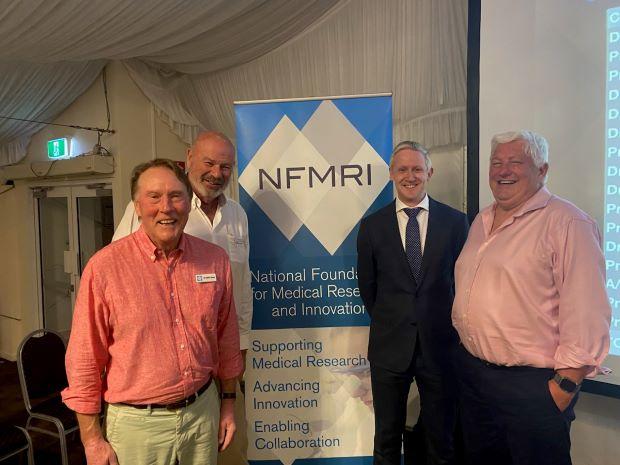Life-changing cream to treat skin cancer moves closer to reality

A topical cream to help prevent and treat skin cancers in organ transplant patients is a step closer to development.
The world-first treatment, currently being developed by University of Queensland researchers, has received $344,000 in funding from the National Foundation for Medical Research and Innovation to help advance the cream through pre-clinical development.
Associate Professor James Wells, from UQ’s Frazer Institute, said the cream contained a novel drug that prevented the formation of skin cancer, which was discovered and developed in partnership with UniQuest’s small molecule drug discovery initiative, QEDDI.
"This project funding is essential to progress the cream through pre-clincial development and allow us to create a formula suitable for application on human skin," Dr Wells said.
“It’s a major step forward that we hope will allow us to take this promising molecule to clinical trials down the track.”
The drug is the only one of its kind and has the potential to prevent the formation and also treat early stages of skin cancer in organ transplant patients.
“After receiving an organ transplant, patients have to take immunosuppressive drugs to help ensure their bodies do not reject the new organs,” Dr Wells said.
“However, these drugs can increase a patient’s risk of skin cancer, in particular squamous cell carcinomas (SCC) and Kaposi’s Sarcoma.
“Currently there are no

(L-R) NFMRI Chairman Dr Rob Sauer, NFMRI Research Advisory Committee Chair Emeritus Prof A. Ian Smith, Associate Professor James Wells & NFMRI CEO, Dr Noel Chambers.
FDA-approved drugs to treat SCCs in these patients, so skin cancers must be managed with regular medical checks and removals over a person’s lifetime until one becomes too advanced and metastasises.
“Patients are left with few options without risking transplant rejection, and that’s why this new treatment would be life-changing for them.”
Dr Wells said QEDDI’s pre-clinical development work would allow the research team to investigate depth of application to the skin and also enable larger scale manufacturing down the track.
UniQuest CEO Dr Dean Moss said a first-of-a-kind treatment for transplant recipients would make an incredible difference to the lives of patients.
“It is exciting to see its journey to the clinic continue,” Dr Moss said.
UniQuest has filed a patent on the molecule.
Topics
Related articles

Change my mind: study finds it’s possible to teach students good decision-making

The brain science behind how we see faces in objects
Media contact
UQ Communications
communications@uq.edu.au
+61 429 056 139
